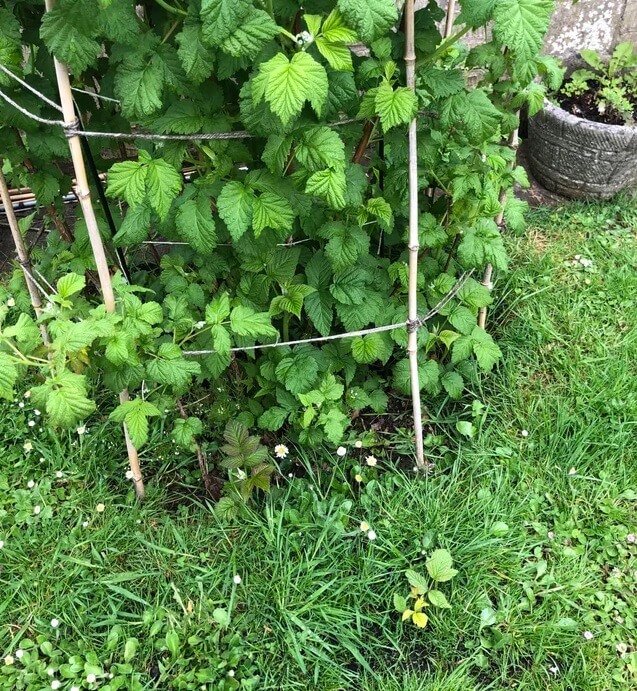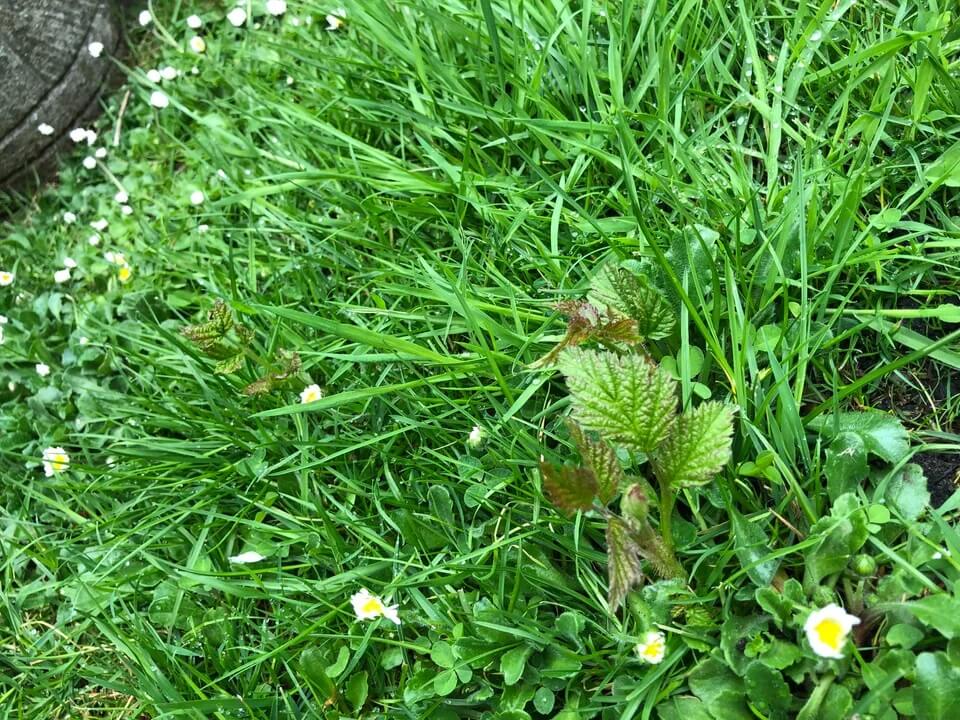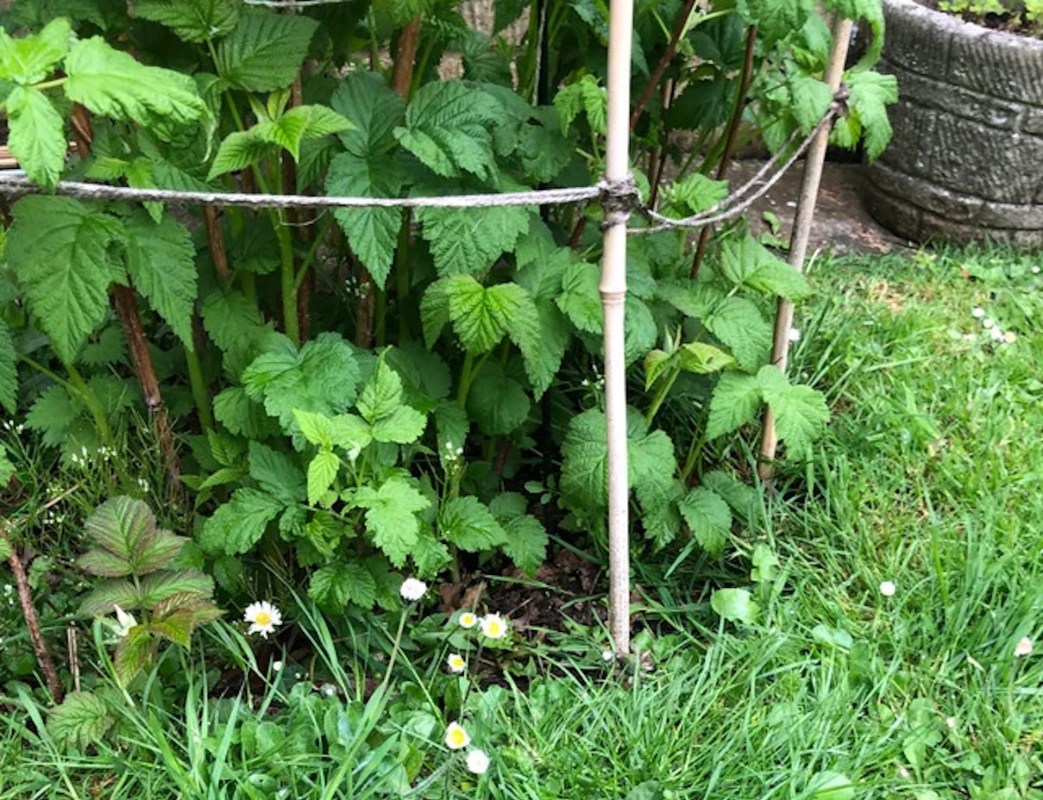One gardener struggled to keep on top of a plant that was determined to spread aggressively from where they'd placed it.
"I made the mistake of planting raspberries next to my lawn a couple years ago. Now it's invading my lawn," they explained with a sad face emoji.


In the photos attached to their r/GardeningUK post, the problem is obvious. The tall, healthy raspberry bush might be contained by a barrier of bamboo poles and string, but its sprouts are not and are coming up in the middle of the owner's grass.
Raspberry plants spread in several ways, including by sending up new shoots from their roots. The roots grow outward from the main plant — bypassing the barrier holding the canes in place — and the new shoot pops up on the outside.
This is a common source of frustration for gardeners who plant certain invasive species like bamboo and English ivy. These plants have adapted to spread out as much as possible, to be very hard to remove, and to grow even from small fragments of roots and rhizomes. Once they're introduced to a new area, they can explode with growth and take over, crowding out or even strangling native plants.
Unlike bamboo or English ivy, though, raspberries are a useful food-producing plant for a home gardener to grow, and just getting rid of them isn't the ideal answer. Preserving the main plant means the owner can keep harvesting raspberries, reducing their grocery bill and the amount of gas needed to transport store-bought raspberries from the farm to their home.
That's where commenters came in. "Dig the ones you've got in your lawn up and give to friends or family. Buy some edging (metal or plastic) that you can bury into the ground to keep runners in check," suggested one user.
"Alternatively, dig up the ones in the lawn and plant them where you would now like your raspberries to grow," said another commenter. "Next winter you can dig up the whole lot and move them. Or for an alternative barrier method, next winter you can cut the bottom out of some large old (free) plant pots and sink the pots into the soil so that each surrounds a plant. Some garden centers that recycle plant pots are happy for you to take some away."
Join our free newsletter for easy tips to save more, waste less, and help yourself while helping the planet.









